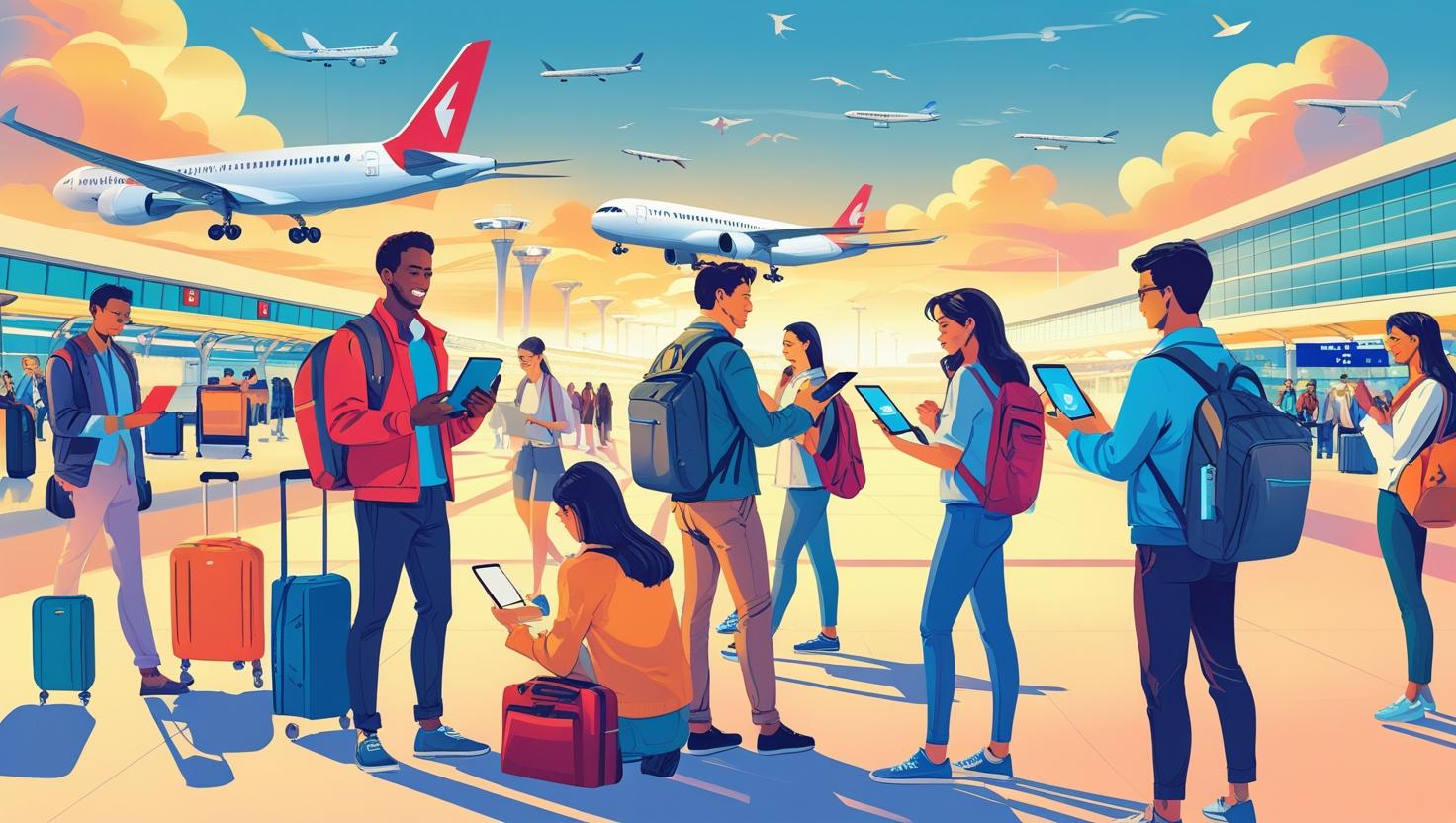
The Importance of Technology in Modern Travel
In the 21st century, technology has transformed nearly every aspect of our lives, and travel is no exception. From planning and booking to navigating and sharing experiences, technology plays a crucial role in enhancing the travel experience for millions of people around the globe. This article explores the various ways technology has impacted modern travel, highlighting its benefits and the challenges that come with it.
1. Planning and Booking
1.1 Online Travel Agencies (OTAs)
The advent of online travel agencies has revolutionized how travelers plan and book their trips. Websites and apps like Expedia, Booking.com, and Airbnb allow users to compare prices, read reviews, and book accommodations, flights, and rental cars all in one place. This convenience has made travel planning more accessible and efficient.
1.2 Travel Apps
Mobile applications have further simplified the travel planning process. Travelers can use apps to:
- Research Destinations: Access information about attractions, local customs, and weather conditions.
- Create Itineraries: Organize travel plans, including activities, dining options, and transportation.
- Receive Alerts: Get notifications about flight delays, gate changes, or weather issues.
1.3 Social Media Influence
Social media platforms such as Instagram, Pinterest, and Facebook have become essential tools for travel inspiration. Travelers can discover new destinations through photos and stories shared by others, leading to a more informed selection of travel options. Influencers and travel bloggers often provide valuable insights and tips that can enhance the travel experience.
2. Navigation and Transportation
2.1 GPS Technology
Global Positioning System (GPS) technology has revolutionized how travelers navigate unfamiliar places. With the help of navigation apps like Google Maps and Waze, travelers can easily find their way, avoid traffic, and discover alternate routes. This technology has made it possible to explore new cities with confidence, reducing the stress associated with getting lost.
2.2 Ride-Sharing Services
Services like Uber and Lyft have changed the way people get around in cities. These platforms offer convenient transportation options at the touch of a button, allowing travelers to request rides without the need for cash or local knowledge. Ride-sharing has also provided a reliable alternative to traditional taxis, often at a lower cost.
2.3 Smart Transportation
Emerging technologies such as autonomous vehicles and electric scooters are beginning to reshape urban transportation. These innovations promise to enhance mobility and reduce congestion, making it easier for travelers to explore cities sustainably.
3. Communication
3.1 Instant Connectivity
The ability to communicate instantly with friends and family back home is one of the most significant benefits of modern travel technology. Smartphones and messaging apps like WhatsApp, Facebook Messenger, and Skype allow travelers to stay connected, share experiences, and seek assistance when needed.
3.2 Language Translation
Language barriers can be a challenge when traveling to foreign countries. However, translation apps like Google Translate and Duolingo have made it easier for travelers to communicate. These tools can help with everything from ordering food to asking for directions, enhancing the overall travel experience.
4. Accommodation and Experience Enhancement
4.1 Smart Hotels
The rise of smart technology in hotels has transformed the guest experience. Many modern hotels now offer features such as mobile check-in, keyless room entry, and personalized room controls via smartphone apps. These innovations enhance convenience and comfort, allowing guests to tailor their stay to their preferences.
4.2 Virtual Reality (VR) and Augmented Reality (AR)
Virtual and augmented reality technologies are beginning to play a role in travel experiences. Travelers can use VR to explore destinations before visiting, helping them make informed decisions about where to go. AR apps can enhance on-site experiences by providing historical context or interactive elements at landmarks and attractions.
5. Health and Safety
5.1 Health Monitoring
In light of recent global health crises, technology has become increasingly important in ensuring traveler safety. Health apps can help travelers monitor their health and receive alerts about potential outbreaks or travel restrictions. Additionally, many airlines and hotels now utilize contactless check-in and sanitation technologies to enhance safety.
5.2 Emergency Assistance
Travelers can access emergency services and information more easily than ever before. Apps that provide local emergency numbers, embassy contacts, and safety tips can be lifesavers in critical situations. Furthermore, GPS tracking technology can help authorities locate individuals in distress.
6. Environmental Impact
6.1 Sustainable Travel Solutions
Technology also plays a vital role in promoting sustainable travel practices. Eco-friendly apps can help travelers make responsible choices, such as finding green accommodations, using public transportation, or participating in conservation activities. Additionally, advancements in electric and hybrid vehicles are helping to reduce the carbon footprint of travel.
6.2 Carbon Offset Programs
Many travel companies now offer carbon offset programs that allow travelers to compensate for their carbon emissions by supporting environmental projects. Technology facilitates the tracking and purchasing of these offsets, making it easier for travelers to contribute to sustainability efforts.
7. Challenges and Considerations
7.1 Over-Reliance on Technology
While technology offers numerous benefits, there is a risk of over-reliance. Travelers may become too dependent on their devices, potentially missing out on authentic experiences and interactions with locals. It’s essential to strike a balance between using technology and engaging with the environment.
7.2 Privacy and Security Concerns
With the increased use of technology comes heightened concerns about privacy and security. Travelers should be cautious about sharing personal information and ensure their devices are protected against cyber threats. Using VPNs and avoiding public Wi-Fi for sensitive transactions can help mitigate these risks.
8. Conclusion
Technology has significantly transformed the travel landscape, making it easier, safer, and more enjoyable than ever before. From planning and booking to navigation and communication, the impact of technology on modern travel is profound. While there are challenges to consider, the benefits far outweigh the drawbacks. As technology continues to evolve, travelers can look forward to even more innovative solutions that enhance their journeys. Embracing these advancements will not only improve individual travel experiences but also contribute to a more connected and sustainable world. Happy travels!


